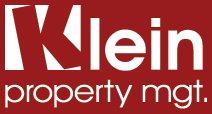HOA / Condo Budget 101
A Homeowners Association (HOA) or Condominium operating budget is a projection of the money needed by the association to cover its operating expenses and provide adequate reserves for repair and replacement of the elements of the property the HOA maintains. Most HOA/Condo documents require that they adopt an operating budget every year. In practice, this means they revise their budget from the previous year to take into account changes in its financial position and cost structure. The governing documents describe the manner in which the budget is adopted each year. In most associations, the governing documents provide that the budget is adopted by the board rather than by a vote of the owners.
The budget is pretty straight forward. An HOA / Condo Board would develop a “zero based” budget each year which is just a compilation of expected operating expenses and bills. However the forecast of required revenue for Replacement or Major Repair of Common Facilities (Reserve Study) is more difficult. Diligent completion of these two studies permits the HOA / Condo Board to establish the required Regular Assessments (Dues) for the membership. In most cases the Board will hire an engineering company which specializes in preparing a Reserve Study. The Reserve Study will list every repairable and replaceable component in the community or building and determine its likely time span until replacement or repair is needed. A more detail explanation of a Reserve Study by Wikipedia is as follows:
A reserve study is a budget planning tool which identifies the current status of the reserve fund and a stable and equitable funding plan to offset ongoing deterioration, resulting in sufficient funds when those anticipated major common area expenditures actually occur. The reserve study consists of two parts: the physical analysis and the financial analysis. This document is often prepared by an outside independent consultant for the benefit of administrators (Board of Directors or Strata Council Members) of a property with multiple owners, such as a condominium association or homeowners’ association (HOA), strata, containing an assessment of the state of the commonly owned property components as determined by the particular association’s CC&Rs and bylaws.
Reserve studies are in essence planning tools designed to help the board anticipate, and prepare for, the property’s major repair and replacement projects. For example, such projects would include: replacement of the roof on the building(s), replacement of the boiler, retrofit of the fire alarm devices, and resurfacing of the roadways.
There are three results from a reserve study:
- A listing of the major assets of the association to be funded through reserves, their expected useful life, remaining useful life, and current replacement cost (yielding the “scope and schedule” of the reserve projects).
- An evaluation of the current strength of the reserve fund (commonly expressed as “percent funded”).
- A recommended multi-year reserve funding plan
For the Operating Budget consider the following items to help make the budget preparation process successful:
- Review the reserve study to determine how much money the association should have set aside for replacement costs and other contingencies. Determine the percentage funded in reserve. Make sure you have planned for adequate cash flow for upcoming expenditures. Compare recommended funding in the reserve fund to the current level of actual funding to also determine if an assessment increase is needed.
- Analyze expenditures for the current year and pinpoint assets that may need to be replaced or upgraded in the coming year.
- Examine each line item to account for increased costs.
- Divide the total among homeowners to determine whether an assessment increase will be necessary to cover costs.
- Review governing documents for specific requirements and recent changes to State Statutes.
- Include a narrative explanation of how each income and expense was determined.
- Be sure to prepare both an operating budget and a reserve budget for the current year, include the budgets as an agenda item for approval during a Board of Directors meeting.
It is essential to review the time line for budget completion and approval by the Board so that distribution requirements set forth in the HOA’s / Condominium’s governing documents can be met. In most cases an approved budget must be mailed or delivered to homeowners 30 days prior to the effective date of the budget or prior to year end.
For more information on reserve studies, or budgeting for your HOA / Condo association, you can reach us at kleinpropertymanagement.com or call us at (732) 446-0611.




